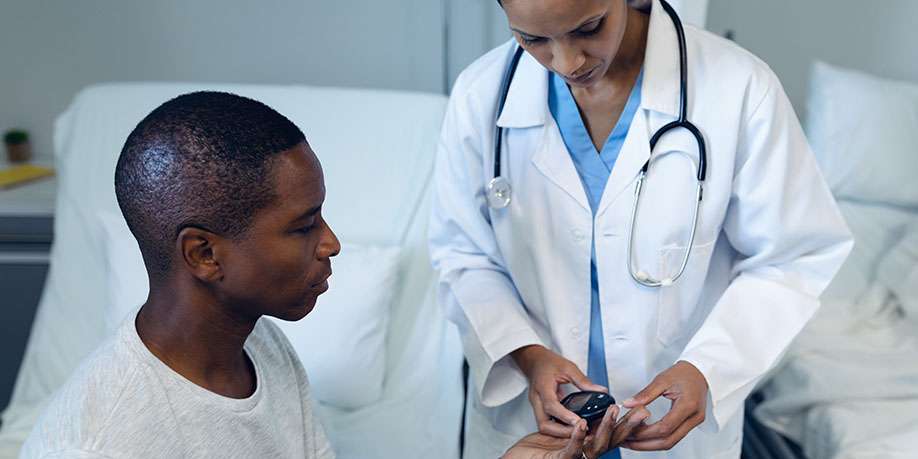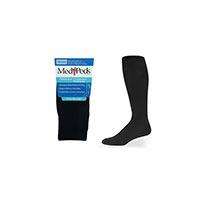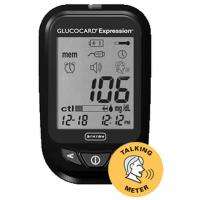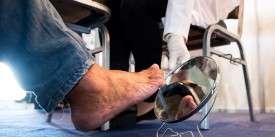
How do you feel when your blood sugar is too high?How do you feel when your blood sugar is too high?
  © Wavebreakmedia Ltd | Dreamstime.com Approximately 10.5 percent of the U.S. population (34.2 million people) has been diagnosed with diabetes. Are you diabetic? Do you have a loved one who is diabetic? Either way, you must know how it feels to have elevated blood glucose (also known as hyperglycemia). When blood sugar gets too high, the risk of blood vessel damage goes up, as does the risk of serious health problems, including heart disease, stroke, kidney failure, vision problems, and nerve damage. Listed below are some of the most common symptoms people may experience if they’re dealing with high blood glucose. Frequent Urination When blood sugar is elevated, it’s common for people with diabetes to need to go to the bathroom more often. Frequent trips to the bathroom result from high blood sugar because it causes the kidneys to have to work overtime to try to absorb and eliminate excess glucose. To get rid of that excess glucose, the kidneys also have to filter out additional water. This, in turn, leads to increased urination. Increased Thirst Because they’re urinating more often (and losing more fluids with every trip to the bathroom), it’s easy for people with high blood sugar to become dehydrated. One of the first signs of dehydration is increased thirst. In fact, when people start to feel thirsty, they’re already dehydrated and have lost up to 2% of their body’s water content. FatigueIf a person with diabetes has high blood sugar, there’s also a good chance that they will start to feel fatigued. There are a few reasons for this. First, when sugar stays in the blood longer than it’s supposed to, the body can’t use it for energy. This means you’re going to feel more fatigued and will likely have a harder time focusing and staying alert at work or school. Second, high blood sugar causes increased urination and dehydration. Fatigue is another symptom of dehydration. The human body is approximately 60 percent water. If it doesn’t have enough fluids, it’s going to have to work harder to continue functioning properly, which will cause you to feel tired faster. Blurred Vision High blood sugar can lead to blurred vision. Like many symptoms of elevated blood glucose, this symptom also has to do with fluid loss. When your blood glucose goes up, fluid gets pulled from all of the body’s tissues, including the lenses of the eyes. A loss of fluid here makes it harder to focus and causes blurring. In the long-term, when left untreated, diabetes can also cause new blood vessels to form in the retina (the back of the eye). This formation also damages healthy vessels. It can lead to vision loss and even blindness. Headaches People with high blood sugar may also experience headaches. Headaches are often considered an early sign of hyperglycemia. They may occur as a result of dehydration as well. When the body loses fluids and they aren’t replenished fast enough, the brain tissue starts to shrink. This shrinkage stimulates the pain receptors around the brain, which then leads to a headache. Numbness or Tingling in the Feet Prolonged high blood sugar can cause a condition called diabetic neuropathy. Diabetic neuropathy damages the nerves that are responsible for sending signals to the feet. This, in turn, can lead to numbness and tingling in the feet and toes. High blood sugar is dangerous for the health of your nerves because, over time, it can weaken the walls of the capillaries (small blood vessels). When capillaries are weakened, they can’t effectively supply oxygen and nutrients to the nerves. Frequent Skin Infections People with diabetes who struggle to control their blood sugar will likely notice that they develop skin infections more frequently. Chronic high blood sugar dries out the skin, impairs circulation, and suppresses the immune system. These three issues, combined, can lead to a variety of infections, including Staphylococcus (or staph) infections and fungal infections. Slow-Healing Cuts and Sores High blood sugar negatively affects the body’s ability to heal wounds. This happens because hyperglycemia damages the blood vessels and inhibits healthy blood circulation. When circulation is impaired, it’s harder for blood, oxygen, and nutrients to reach the wound site. As a result, healing will be slower than normal (or it might not happen at all). If nerves are damaged (which can happen when blood sugar is elevated), that also slows down wound healing. When blood sugar becomes elevated and stays elevated for a long time, it can cause a variety of health issues. From increased thirst and urination to slower wound healing and an increased risk of skin infections, there’s a lot that can go wrong. The first step to avoiding these conditions is to stay informed. Being aware of what can happen when blood sugar is elevated can help you spot the signs, take action quickly, and maintain control over your health.
| |||||||||||||||||||||||||




























